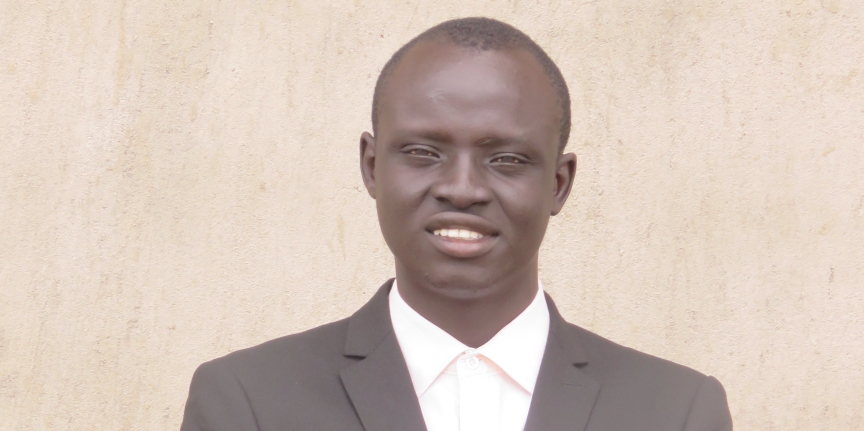Undeniably, every citizen longs for peace in South Sudan. The current economic hardship, compounded by insecurity and natural disasters, has intensified the urgency for peace to breathe new life into the Revitalized Transitional Government of National Unity (RTGONU). Enter the Tumaini Consensus, a Kenyan-led initiative that many regard as a beacon of hope.
The Tumaini Initiative was launched on May 9, 2024, in Nairobi, Kenya, as a high-level mediation effort aimed at incorporating major holdout opposition groups that did not endorse the Revitalized Agreement on the Resolution of Conflict in South Sudan (R-ARCSS) signed in September 2018. Kenyan President William Samoei Ruto is spearheading this mediation initiative. In March 2024, he appointed his country’s former army commander, Lazaro Sumbeiywo, as Chief Mediator. Gen. Sumbeiywo is well-known in South Sudan; nearly two decades ago, he played a crucial role in mediating a peace agreement between the Government of Sudan and the then-rebel SPLM, ultimately leading to the birth of South Sudan. His involvement in the 2005 Comprehensive Peace Agreement (CPA) earned him a reputation for nobility, and his return now offers renewed hope. His deep understanding of South Sudan’s political landscape is a significant asset as we strive for the peace our country desperately needs.
The Tumaini Initiative arose from President Salva Kiir’s request for President Ruto to assume the mediation lead from the Community of Sant’Egidio in Rome, Italy, as the Rome-led talks had stalled. The urgency demonstrated by President Kiir was evident when, by July 2024, the opposition South Sudan Opposition Movement Alliance (SSOMA) and government delegates had initialled 11 protocols.
However, in the same month, the Kenyan-led mediation faced a setback when some traditional politicians within the government expressed concerns over specific proposed mechanisms in the initialled documents, leading to stagnation as the Tumaini process reached its final phases. It was not until November 2024 that it became clear the stalled Tumaini talks would resume. However, the government delegation now features new faces. These changes could indicate that the government felt cornered by the well-organized SSOMA, led by prominent figures such as Pagan Amum. Understandably, the government had to feel pissed off at its mediation team, and it had to displace its frustration by prompting the replacement of some members of the mediation team.
As talks resume on December 4, 2024, the government is focused on recovering from the earlier setbacks—’ the July situation’.
Now, the delegation consists of a robust 15-member team led by Gen. Kuol Manyang Juuk. Gen. Kuol, a devout Christian baptized as Lazarus, faces the challenge of repositioning the government positively. Previously a staunch critic of the Tumaini peace initiative, downplaying it as insignificant, he now leads the government delegation. This transformation echoes the biblical story of the first-century Lazarus from the Gospel of John, who was miraculously raised from the dead by Jesus after being entombed for four days.
Gen. Kuol’s previous stance on the Tumaini Initiative should not be viewed merely as an obstacle but as an opportunity. It is now his responsibility to bring the coveted trophy of peace home, as he declared in recent media interviews. Should there be a failure, he will likely shoulder the lion’s share of the blame, given his prior reservations about the initiative he has now embraced.
In relinquishing his earlier critiques, Gen. Kuol had this to say, “Everyone has the right to express their opinion. However, I’ve come to realize that the majority is often right. With this newfound understanding, I approach these discussions with an open heart, hoping to facilitate a return to peace for all.”
That said, this brings us to the kicker—a crucial question: Why Tumaini?
South Sudan has endured turmoil and conflict since gaining independence from Sudan in 2011, culminating in a civil war that erupted in December 2013. This violent conflict has led to widespread suffering, displacement, and a severe humanitarian crisis affecting millions. Numerous efforts to broker peace have been made, yet many negotiations have faltered, heightening frustrations. The 2015/16 Agreement on the Resolution of Conflict in South Sudan (ARCSS) collapsed following renewed violence, necessitating a revitalization of the peace process. On September 12, 2018, the revitalized ARCSS was signed, replacing the 2015 agreement, and a new government was established two years later.
The R-ARCSS officially expired on February 22, 2023, and since then, the Agreement has been legitimized twice by extension. Beyond the power-sharing provisions in Chapter I, few achievements of the R-ARCSS have been realized, underscoring the need for revitalization.
However, a significant point of contention exists: opposition groups view Tumaini as a vital opportunity to salvage the country from collapse, while the government regards it as an annex to the R-ARCSS. These divergent perspectives signal troubling signs, hinting at a potential deadlock ahead of the resumption of negotiations.
The pressing question remains: if only 20% of the R-ARCSS has been implemented since its inception five years ago, what difference will an annexure make? Why not have R-ARCSS replaced? Is there a broader strategy at play to maintain the status quo? One thing is certain though, if the Tumaini Consensus germinates into a sustainable peace, we will all benefit, if it fails only the war profiteers will continue to thrive at our expenses.
As the Tumaini peace talks resume, all eyes will be on the two eminent Lazaruses—Gen. Kuol Manyang Juuk and Lazaro Sumbeiywo—to see if they can lead South Sudan towards a hopeful and sustainable peace.
The author, Manas James Okony, is a South Sudanese journalist. He can be reached via manasjokony@gmail
The views expressed in ‘opinion’ articles published by Radio Tamazuj are solely those of the writer. The veracity of any claims made is the responsibility of the author, not Radio Tamazuj.




